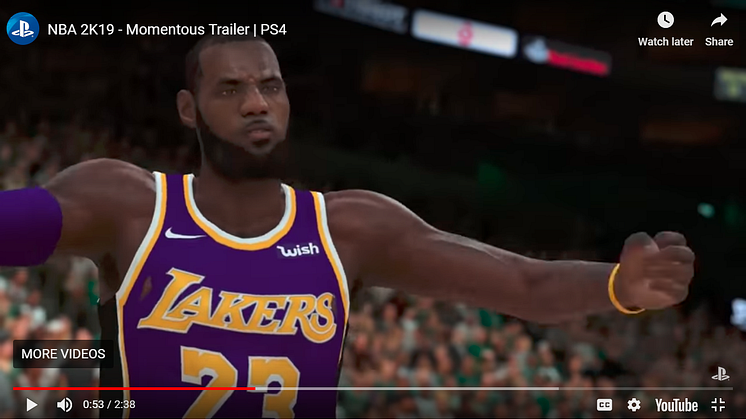
News -
Athlete tattoos – who owns the copyright?
Question: if a photographer takes a picture of someone, he owns the copyright to the picture. But if a tattoo artist inks a famous athlete, does he or the athlete own the copyright?
Answer: the tattoo artist owns the copyright to his work of art, even if it is on a living, breathing human canvas.
Which makes it a headache for video game companies who feature famous athletes, as they are rendering the video game versions of athletes with tattoos, and are getting sued for it.
So far, a company called Solid Oak Sketches which owns the copyrights for five tattoos on three basketball players has sued Take-Two Interactive because they were used in the NBA 2K series. An artist sued the same game company due to his ownership of another tattoo on James. Another artist sued because her tattoos on the wrestler Randy Orton had been included in several iterations of WWE 2K, a video game also made by Take-Two Interactive.
So should these video game companies just stop putting tattoos on the in-game athlete figures? But would Lebron James still be Lebron James without his tattoos in the NBA 2K video games? Or Lionel Messi without his sleeve of tattoos in the FIFA Football video games?
To make matters complicated, the appearance of copyright trolls is making it difficult for the video game companies. Solid Oak had approached tattoo artists who have done work on basketball players to get their copyrights, then sued Take-Two Interactive for copyright infringement. Solid Oak is not a tattoo company, and two of the three tattoo artists who licensed their work to the company were under the impression they were doing it for a clothing line.
Before filing its lawsuit against Take-Two Interactive, Solid Oak wanted US$819,500 for past infringement and proposed a US$1.14 million deal for future use of the tattoos.
Solid Oak’s lawsuit amounts to "a shakedown and copyright trolling", according to New York University law professor Christopher Jon Sprigman, who told The New York Times: "The ability of the celebrity, or really anyone, to do that is an element of their personal freedom."
Take-Two has argued in court papers that Solid Oak’s tattoos are seen rarely, fleetingly and hazily in the NBA 2K games, but the judge rejected a motion for dismissal in March. The lawsuit between Solid Oak and Take-Two Interactive is ongoing.
Going ahead, athlete associations are telling their players to bring a release form when they next get inked. For athletes who already have tattoos it might be hard but necessary to track back and find their tattoo artists to sign transfer of ownership in the copyright of the images to the players.
It is likely that more companies who work with athletes will put these demands on tattooed players, according to Darren Heitner who wrote in Forbes:
- Provide proof that they own the copyright of the images tattooed on their bodies
- Agree to an indemnification clause
- Received signed releases from their tattoo artists as evidence that no action will be taken against them or third parties based on the commercial use of an image bearing the tattoos.
Currently the situation is playing out like a gold rush in a nascent situation for tattoo artists and copyright trolls. We think that as athletes become more media savvy about tattoo copyrights they are likely to get their release forms signed, and they will go back to owning all of their personal likeness.
That's unless the tattoo artists get there first, and confront athletes with their own contractual demands for royalties when that athlete becomes famous in part through their distinctive tattoos and earns millions.
Related links
- NBA 2K Tattoo Copyright Suit Offers Two Compelling Legal Arguments, But Only One Seems Practical
- Athletes Don’t Own Their Tattoos. That’s a Problem for Video Game Developers
- Why tattoos digitally recreated on athletes’ avatars are a problem
- Questions Concerning Copyright Of Athlete Tattoos Has Companies Scrambling
